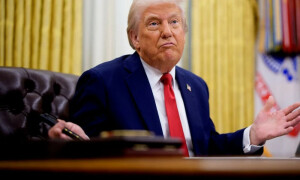ISLAMABAD: The Pakistan Textile Council (PTC) has expressed concerns over the proposed amendments to the Export Facilitation Scheme (EFS), calling them counterproductive to the ease of doing business and potentially diminishing the global competitiveness of Pakistani products.
In a letter addressed to the Secretary of Export Policy (FBR), the PTC has outlined its objections to the proposed amendments circulated by the Federal Board of Revenue (FBR).
The council has stressed that any changes that do not prioritise the interests of the textile industry could have a detrimental impact on Pakistan’s exports.
PTC seeks Aurangzeb’s help to save sinking textile industry
Introduced in 2021, the EFS has been instrumental in boosting the competitiveness of the textile sector by streamlining processes and facilitating smooth export operations.
The PTC warned that the amendments proposed in SRO 204 (1)/2025 could result in operational inefficiencies and increase compliance burdens for exporters.
Specifically, the PTC believes that the amendments should focus on improving efficiency rather than disrupting established systems.
A key concern raised by the PTC is the processing timeline for determining production capacity and input-output ratios.
Under the proposed changes, the Input Output Coefficient Organization (IOCO) will have 60 days to process applications, with exporters permitted to acquire only 25 per cent of their declared input goods provisionally.
The extended timeline creates uncertainty for manufacturers, many of whom operate under strict schedules.
The PTC has recommended reducing the processing time to 30 days and raising the provisional approval to 50 per cent to prevent delays that could hamper business operations.
Another concern is the proposed extension of the monitoring timelines for pending cases under the Chief Collector (Exports & IOCO) to 60 days, which could slow down approvals and disrupt supply chains. The PTC has urged the FBR to maintain the current 30-day timeline to strike a balance between regulatory oversight and operational efficiency.
The PTC also voiced concerns over amendments that would require annual authorisation of input goods based on IOCO assessments, making future authorisations subject to the Regulatory Collector’s discretion. This change could introduce uncertainty and bureaucratic obstacles.
Instead, PTC has recommended an automatic authorisation process upon the submission of reconciliation statements, with any discrepancies addressed through audits, thus reducing delays while maintaining compliance.
Another proposed change that has raised alarm is the reduction of the input utilisation period from 60 months to just nine months. The PTC argued that this would lead to frequent procurement disruptions and higher costs for exporters. The council strongly recommended that the utilisation period be set at a minimum of 24 months, with a possible six-month extension granted by the Regulatory Authority.
Any further extensions should require FBR committee approval, as per the FBR’s original recommendation. This would provide more predictable and stable production cycles.
The textile industry is also concerned about the proposed restriction on B-grade or rejected goods, which would limit their proportion to just five per cent of total production. Given that variances are inherent in manufacturing, PTC has urged FBR to raise this threshold to 10 per cent, aligning with industry standards and preventing financial losses.
Another amendment under review is the removal of the carry-forward provision for unutilised input goods. The PTC warned that eliminating this flexibility would force exporters to consume input materials faster than their production cycles permit, creating inefficiencies and financial burdens.
The council insists that the carry-forward provision should be retained, allowing unutilised goods to be carried forward into the next year upon submission of reconciliation statements.
Additionally, the FBR has proposed reducing the timeframe for uploading domestic acquisitions with zero-rated sales tax from 30 days to just seven days. The PTC has expressed concern that this drastic reduction could lead to administrative inefficiencies and expose exporters to penalties for minor delays.
The council has recommended restoring the original 30-day deadline to provide a practical compliance window for businesses.
The EFS has been a key factor in creating an export-friendly environment in Pakistan, particularly for the textile sector.
The scheme has enabled exporters to stay competitive in global markets. However, PTC believes that while regulatory oversight is important, excessive restrictions and prolonged approval times could hinder the very businesses that drive Pakistan’s exports.
The PTC has called on the FBR to engage in constructive dialogue with industry representatives to ensure that the amendments promote the continued growth of the export sector, rather than creating unnecessary obstacles. By incorporating the PTC’s recommendations, the FBR can ensure that the EFS remain an effective framework for exporters while addressing regulatory concerns.
Copyright Business Recorder, 2025






















Comments